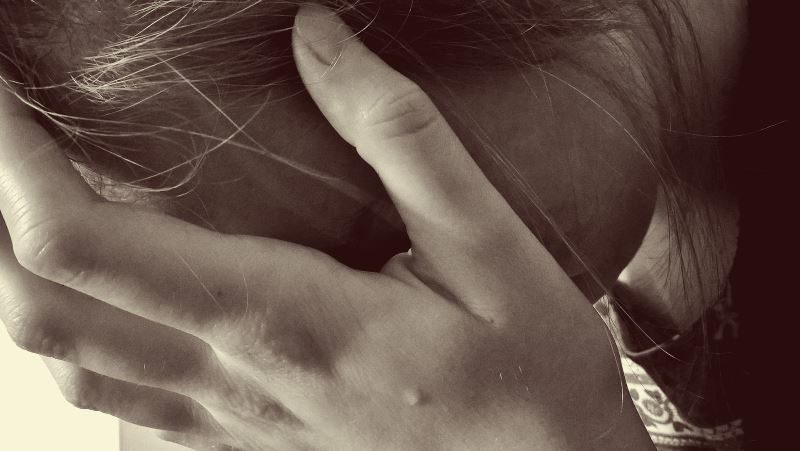In the past article, I mentioned that it would be valuable to touch upon the difficulties and challenges faced by those diagnosed with chronic illness in terms of emotions and psychological factors. It stemmed from a progression of ideas that started with discussion on the value of exercise for optimal wellbeing, and why it is often difficult to get started on a healthy regime. I also alluded to the fact that these kinds of articles are often ‘yawn worthy’ because we all know what we should do (and are probably sick of reading it) … it’s just that we often don’t do it!
Unfortunately, the Middle East has some frightening statistics when it comes to the subject of illness. Many regional health authorities, such as the Health Authority Abu Dhabi, the Department of Health Dubai, as well as the World Health Organisation (WHO; 2012), have noted the prevalence of poor diet, lack of exercise, and heavy tobacco use on the population. The consequences are widespread non-communicable diseases, such as diabetes, cancer, cardiovascular and chronic respiratory disease, and up to 50% of people dying from these diseases will die before 60 years of age (WHO, 2012).
If we concentrate on people who lead more unhealthy lifestyles, there is a small percentage that don’t do anything until the line has been well crossed. I have seen clients where they are at real risk of diabetes for instance, but they simply say “they cannot stop” their unhealthy lifestyle—perhaps a penchant for unhealthy food or an aversion to physical activity. Thus, I am referring to a sub-population who are on such a negative spiral that they tell me they will need to get diagnosed with something serious in order to ‘wake up’.
So what if the gauntlet IS suddenly thrown down and you are diagnosed with diabetes, a heart condition, or even something as devastating as cancer? Let’s run through some of the general emotional and psychological difficulties and challenges that face adults in these situations. This is going to be a little broad in its scope, because as you can imagine, one cannot possibly outline all the possible factors, as the illnesses themselves differ in many ways—one condition might require medication, and another might require removal of a body part and then more treatment. And naturally, people are not easily compartmentalized either–everyone is different and that there is no one correct way to respond or cope.
Upon the diagnosis of illness or disease—especially if it is life threatening—there will be a barrage of difficult, distressing, and uncomfortable emotions and reactions. The most common ones are the immediate shock, followed by anxiety, depression, and anger (in no particular order). Sometimes people also battle with denial, guilt, and resentment too—asking themselves repeatedly why this happened to them, or blaming themselves as a possible cause.
Indeed, depending on who gets diagnosed in a relationship or family, it is often the case that roles change too, and often quite suddenly and dramatically. One day everything appears to be fine, and the next, there has been a diagnosis and a barrage of medical appointments and interactions that generally follow. This is a lot for anybody to contend with, and it normally involves necessary shifts in work, family and lifestyle / personal routines and habits, as well as a long period of adjustment and adaptation.
In the longer term, if it is the case that a spouse needs to become a caregiver in some capacity, especially in times of their loved one’s very ill health (think directly after chemotherapy or the like), then they may also feel some of the very same feelings mentioned above. Yet, they may not know how to balance their new role with their old one, nor how to manage the emotions that they feel. There is often societal pressure to be relentlessly positive and optimistic in these situations, and thus in reality, it becomes very difficult to turn to people and express one’s true emotion—perhaps the feelings of fear and helplessness when their spouse needs them or is in pain; their sadness when their spouse pushes them away in trying to assert independence; their frustration at why this illness has altered the dynamics of the family, and what to say to the children and so forth.
As such, a person’s ability to cope with illness is wide open and directly challenged. People often feel vulnerable and helpless, almost as if they are just a number or part of a system. Furthermore, if a person has never encountered this type of scenario before (maybe never seeing / knowing loved ones ill or die), it can be even more of a shock to the system. Indeed you can imagine if people lead sedentary or unhealthy lifestyles without much knowledge of chronic illness such as diabetes or cancer, and who suddenly have to embark upon a detailed and difficult regime for treating it. People feel the threat to their autonomy, self-image and / or self-esteem, body image (often a huge factor), confidence, and general direction in life, as well as potentially new relationship issues, especially if there were difficulties prior to diagnoses.
These issues are just the tip of the iceberg, as you can see how circumstances could change over time depending on illness chronicity and treatment required, life stage of the individuals involved, their family situation, and other multiple factors. I am sure that most people don’t even consider these things when they are caught up in their day-to-day lives and not tending to their health in the optimal way. Furthermore, going to see a psychologist is often still viewed with scepticism – especially when it comes to health. For many, illness is purely a physical matter, and your reaction to it is secondary to management at a functional level. I have seen clients who were clinically depressed and virtually suicidal, but it was never picked up in the medical system, as proper assessment guidelines were unavailable. The patients who received help were those who stood up and asked for it–they were clear on their limits and knew they could take no more.
On a brighter note, people can and do resume very normal and fulfilling lives once they have learned to manage or move past their diagnosis and condition. Perhaps physically they are not 100% but many go forth with a much stronger regard for life; valuing and appreciating things at a totally different level, doing completely new things, and finding benefit wherever they can.
All up, we go back to the importance of developing and maintaining strong physical and psychological health as well as building up solid relationships while we are fit and able to take as much control as possible of things. And if you are interested in knowing about how to cope in specific situations, then please let me know, and I would be happy to outline some solutions for you.
About the Writer
Dr Melanie Schlatter (PhD) is a Health Psychologist based at the Well Woman Clinic in Dubai. After completing an Honorary Research Fellowship in the area of psychoneuroimmunology in New Zealand, Melanie came to Dubai because she saw a great need for psychological support services in the community - not only for individuals affected by physical illness (such as cancer, pain, obesity, and diabetes), but also for healthy individuals dealing with stress, anxiety and / or depression.








